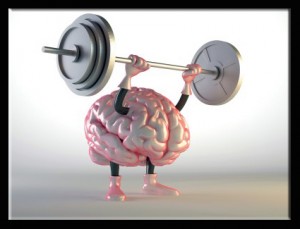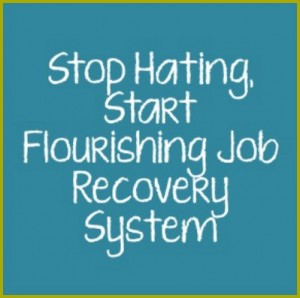When our brains get stuck in a pattern that focuses on stress, negativity and failure, we set ourselves up to fail. – Shawn Achor
Do you ever think you need to be more positive, but you’re not really sure what good that will do?
Maybe your boss is on the annoying side, you have a creepy co-worker and you just can’t seem to get out from under that pile of to-dos?
What the heck is having a better attitude going to do to help any of those things?
The boss will still be there, co-worker will still be annoying, and the work will never really be “done.”
Well one researcher says if you use your brain the right way, you’ll have lots to be happy about.
This is your brain on positive
According to Shawn Achor, psychologist, Harvard researcher and author of The Happiness Factor, when we raise the positivity levels in our brains, we actually do better work. Oh, and, we are happier.
If you think about it, we’ll rarely if ever have perfect “life conditions.” Like, in the workplace.
Achor says that 90% of long-term happiness is determined by how your brain processes the outside world. Like, imperfect conditions in the workplace.
He also asserts that optimism is a strong predictor of job performance. According to the research Achor and his team have conducted, 75% of job successes are predicted by these three things:
- Optimism level
- Social support
- The ability to see stress as a challenge, rather than a threat.
(Sorry all you smarty pants out there — only 25% of job successes are predicted by IQ!)
Would you be up for it?
So, if you could train your brain to be more positive, you could better deal with what’s going on around you, be a better performer, earn more money, have more satisfaction. Would you be up for that?
If so, keep reading, because I’ll share Achor’s five exercises you can do to train your brain to be more positive.
Create new positive patterns
I’m not a fan of the notion that if you think positive thoughts, your whole life magically changes. I do believe that you can do anything with a positive attitude, better, than you can do it with a negative one.
So this positive brain training is not chanting positive mantras. It’s about “becoming more positive in the present.” It’s about taking action steps that help re-wire your brain, so that you focus on the positive patterns you create, rather than the negative patterns that block you.
So here you go. If you are up for the challenge, each day for the next 21 days, get into Brain Training:
- Gratitude: Write 3 new things for which you are grateful.
- Journaling: Write for two minutes about one positive experience that happened to you in the past 24 hours.
- Exercise: 10 minutes a day.
- Meditate: For at least 2 minutes per day, focusing on your breathing.
- Random or Conscious Acts of Kindness: Reflect on the people you work with. Each morning, write an authentically positive and affirming email praising someone or thanking someone for their contributions. (Remember, to be meaningful, you have to mean it…)
If you decide to take the challenge, leave a comment below so we can check in with you and see how it’s going. I’m going to do the same, and I’ll let you know how it goes!
[divider style=”hr-solid”]




I take the challenge Lea! Even though I’m bad at keeping routines such as these, I do really believe they make a difference. The one comment I’d add, is that number 5 has a caveat, the praise has to be genuine or else it won’t have the same impact on you or the person you bestow it upon. Heart felt appreciation, thanks, gratitude, and/or praise is the name of the game, or else it can come across as flattery, and flat.
I look forward to seeing how this test progresses!
Jason Stephens
Seattle
Hi Jason! Good for you, and congrats! Let’s compare notes and see how it goes. I agree that it makes a difference. Your point about #5 is well taken, and I’m going to amend that to ensure it’s authentic and genuine. Perhaps the action should be to first reflect on the team you work with, and then each day find one authentically positive point of praise or appreciate for something they’ve done! Ok, let me know how you do Jason! Thanks for reading, and for your comments!